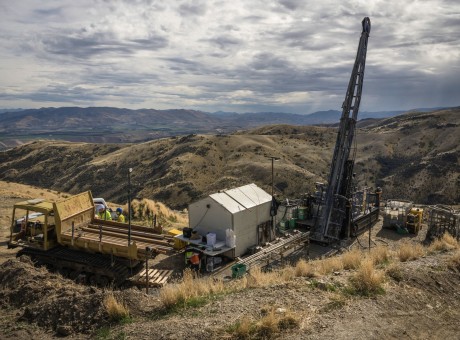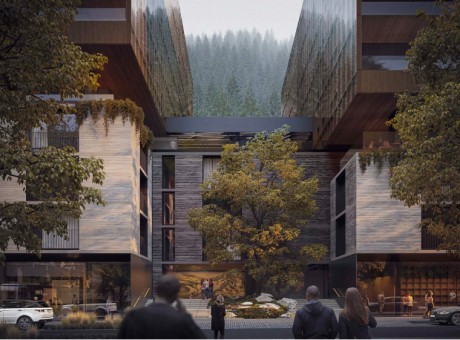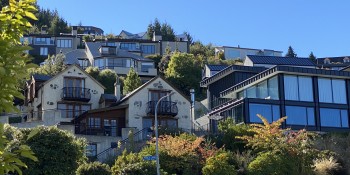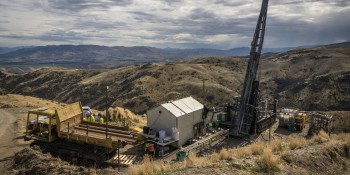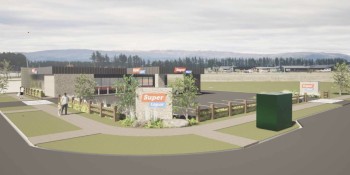Community group to fight Upper Clutha's pest pines
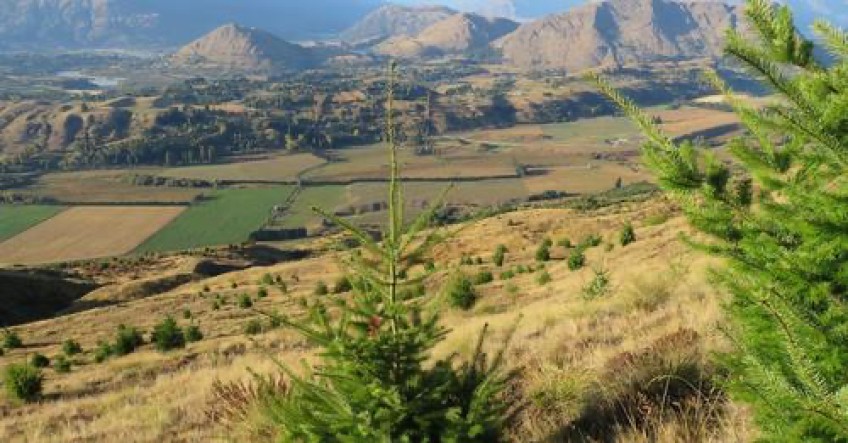
A group of Upper Clutha residents is calling for urgent action to control wilding conifers before the number of the pest trees in the area becomes too big to handle.
The Otago Regional Council says left unchecked wilding conifers have the potential to smother native plants, reduce stream flows, limit productive land use, increase wildfire risk and permanently alter the Upper Clutha landscape.
The council's flagged the trees - defined as any introduced conifer that's self-seeded and growing where it's not wanted - as pests in its pest management plan, and it has a responsibility to contain their spread.
It's helping the new group get off the ground.
In a statement, the council's Gavin Udy says controlling the spread of the trees has to be a collective effort and "it's great to see another group join the fight".
Mt Maude resident Di Kenton - a member of the new control group - knows first-hand wilding pines increase the intensity of wild fires.
In 2018 there was an out-of-control fire on Mt Maude above Lake Hawea and local residents had to quickly evacuate their homes.
‘Watching a dynamite trail being lit’ – Mt Maude resident
Ms Kenton says she couldn’t believe how quickly the fire spread.
“It was like watching a dynamite trail being lit.”
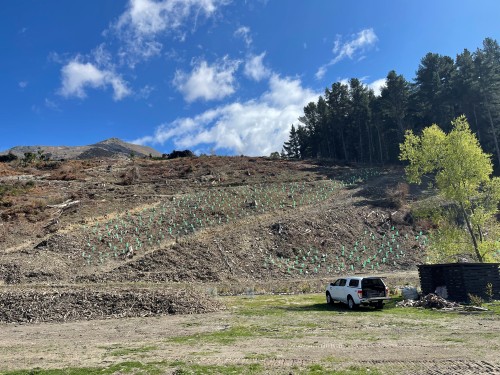
Mt Maude resident Di Kenton's on a mission to clear wilding pine from her rural property, replacing them with 10,000 natives and counting (Image supplied ORC).
After Ms Kenton and her animals were evacuated along with other residents on Mt Maude, the fire was managed with helicopter monsoon buckets collecting water from Lake Hawea, and local volunteer fire crews on the ground.
She says had the fire started a few hours later in the evening the choppers wouldn’t have been able to fly and, given the prevailing wind, the fire could have been a lot worse.
Ms Kenton had already been removing wildings from her property, and since the fire has removed the final five hectares over concerns around further wildfires and the progressive southern spread of wildings through to Maungawera and down the banks of the Hawea River.
Wānaka resident Arne Cleland is clear that action is required urgently.
“We have an opportunity to get on top of this problem within the Upper Clutha if we take action now.
"If we allow the existing trees to start producing seed, the problem will compound dramatically.
"Any delay will add significantly to the cost and make control even more challenging."
"Wilding trees will not only change how our place looks, they will alter the ecological processes in the landscape. These trees have the ability to eventually cover any hill you can see from Wanaka and Hawea if left unchecked."
Mapping wilding infestations and developing a plan
The group’s facilitator Rob Phillips says they are currently mapping wilding infestations and developing a plan, setting out the areas to control, priorities and timeframes.
“Cost-effective surveillance and control of wilding conifers is achievable if we act now,” he says.
“Without intervention, wilding pines will continue to spread. If action is delayed, the impacts of wilding conifers and control costs will increase exponentially."
The group is working with central and local government, and with other community groups, in advocating for ongoing funding to deal with the problem both in the Upper Clutha and elsewhere in Otago.
There are three community groups in the region focussed on controlling wilding conifers - the Central Otago Wilding Conifer Control Group, Whakatipu Wilding Conifer Control Group and the recently established Upper Clutha Wilding Tree Group. The National Wilding Conifer Control Programme, led by Biosecurity New Zealand and managed locally by the ORC, has funded control work across Otago since 2016.
To find out more about plant pests in Otago you can visit the ORC’s Pest Hub.
For more information on wilding control nationally you can visit mpi.govt.nz/biosecurity/long-term- biosecurity-management-programmes/wilding-conifers.






